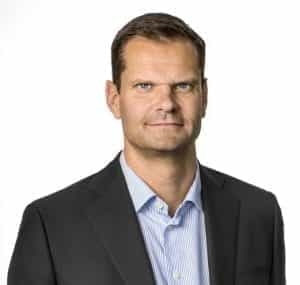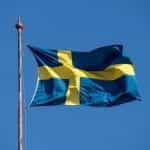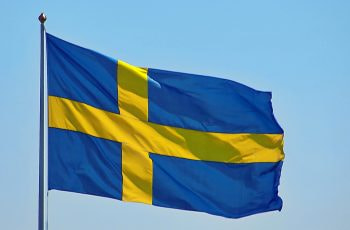Svenska Spel Revenue Not Up to Scratch
Third-quarter gross gaming revenue of Svenska Spel declined to SEK 4.6bn (£317.8m/€430.1m/$478.9m) as a result of increased competition and regulation. The company’s net gaming revenue has also decreased year-by-year by 5.2% to SEK 2.01bn. The Swedish market was re-regulated earlier this year, which is believed to be responsible.

The chief executive of Svenska Spel, Patrik Hofbauer, identified the main cause of loss of revenue to be the recent regulation of the Swedish market and increased competition. ©om.svenskaspel.se
Patrik Hofbauer, the president, and chief executive of Svenska Spel, said: “Even though we have stabilized Svenska Spel’s operations after the changes at year-end, the result is not yet at the level we are striving for”.
Hofbauer went on to indicate that the recent regulatory and licensing changes in the country were responsible. He claimed the presence of new competition in the licensed market was a major reason for the decline in both net and gross gaming revenue. Despite this Hofbauer still defended competition and stated that Svenska Spel saw it as a positive rather than a drawback.
“Our digital business and our customer bases continue to develop positively, but revenue is adversely affected by increased competition and efforts in gaming responsibility” Hofbauer said. He then continued, “Increased competition is something that is positive and that spurs us on at Svenska Spel to be even better”.
The Tur division of Svenska Spel is the side of the company which handles the lottery games. Of the net revenue of the company, SEK 1.12bn came from this division. This was a 1.5% decrease from 2018.
The online Sport & Casino division of Svenska Spel also saw a decrease in revenue in the third quarter. Revenue declined to SEK 462m. Casino Cosmpol and Vegas are Skenska Spel’s land-based casino and gaming machine division, and the revenue from this division also declined by 16.4% to SEK 429m.
“The results for Casino Cosmopol & Vegas are affected by customers’ move from physical play to online, but also by efforts linked to the duty of care and money laundering legislation,” Hofbauer added.
The chief executive said that although the increase in regulation has impacted revenue across the industry in Sweden, he believes that the restrictions will prove beneficial in the future.
“We can see that the gaming industry is being squeezed by lower revenues in 2019,” Hofbauer said. “Part of the explanation lies in the changes brought about by the new game regulation, in particular, the national self-exclusion database Spelpaus and mandatory deposit limits. These are positive changes as they protect consumers and build a long-term sustainable industry through sound revenue.”
Svenska Spel’s Finances
In 2019, a new expense for operators in Sweden in 2019 has been the introduction of a gaming tax as a result of the re-regulation of gambling in the country. Svenska Spel paid SEK 377m for this gaming tax. The company also paid SEK 279m in direct operational costs, which is down 7.3% from 2018. This results in a net turnover of SEK 1.41bn, a decline of 25% since the previous year.
Svenska Spel saw an increase in personnel costs of 4.4% to SEK 257m and increases in other internal expenses of 7.9% to SEK 439m. Depreciation and amortization costs rose by 35.5% to SEK 84m.
Overall this increase in expenses led to an operating profit of SEK 639m, which is a decline of 45.7% from 2018.
The company lost a further SEK 6m on financial items, but in spite of this Svenska Spel reported a gain of SEK 687m from deferred tax assets. This offset the SEK 99m paid in tax, giving the company an overall profit of SEK 1.22bn, which is up 4% from the previous year.
Deferring the tax asset was a result of different ways of measuring depreciation between Svenska Spel’s financial reports and taxable revenue. These differences, as a result, mean Svenska Spel’s current taxable income is higher, but it will have to pay SEK 687m in the future.
The operator explained that “uncertainties” in terms of how to report depreciation for the first half of 2019 meant that the deferred tax asset covers the first nine months of 2019.
The Sport & Casino division is ready and expecting growth in the future, especially after its SBTech-powered platform launches in 2020, according to Hofbauer.
“On the product side, the Sport & Casino business area has expanded its range with, among other things, more tables in the live casino and the new game Football Studio 1X2,” Hofbauer said. “Poker has been updated so that customers can play directly on the web without downloading software. The offering on sports betting is being developed through the collaboration with SBTech as supplier of a new sportsbook, which is expected to be in place in 2020.”



